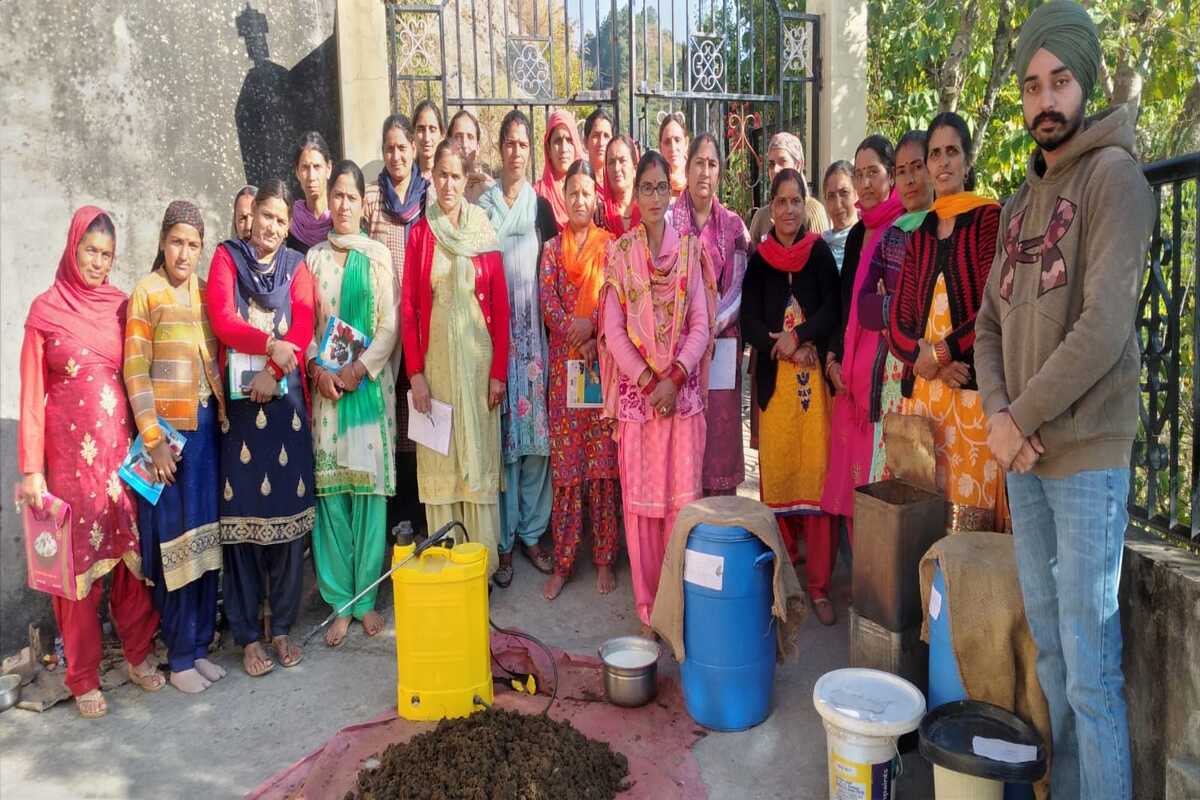‘One Stop Center’ helps over 2 lakh victimized women in UP
The Uttar Pradesh government is making significant strides in empowering, securing, and promoting women's self-reliance.
After receiving training from the Himachal Pradesh government under Prakritik Kheti Khushhal Kisan Yojana (PK3Y), participants have made significant progress toward changing their identity from farmers to entrepreneurs.

Photo: SNS
Women farmers from Himachal Pradesh’s Solan development block are positioned to become “change makers” in the agro-marketing field, having formed the first all-women Farmer Producer Company (FPC) for collective marketing of certified chemical-free natural produce.
After receiving training from the Himachal Pradesh government under Prakritik Kheti Khushhal Kisan Yojana (PK3Y), participants have made significant progress toward changing their identity from farmers to entrepreneurs.
Advertisement
A few years ago, they began transitioning from chemical-based farming to a natural, inexpensive, and climate-resilient farming method. Farmers from three Panchayats in the Solan district; Jabal Jamrot, Haripur, and Deothi make up the first all-female FPC.
Advertisement
The Solan Natural Farmer Producer Company has ten primary shareholders as of right now (five women farmers serve on the board of directors and an additional five serve as promoters), and 60 more women farmers are prepared to join this FPC for the purpose of marketing natural
produce, such as a variety of fruits and vegetables as well as milk products.
So far, four FPCs in all (Chopal, Pachad, and Karsog apart from one all-women FPC in Solan) have been registered in the state for marketing natural products, giving a push to enable the Sustainable Food Systems Platform for Natural Farming (SuSPNF) in the interest of sustainable agriculture through natural farming techniques in the hill state.
Radha Devi, a native of Koti village, switched to natural farming in 2019 after seeing the success of a women’s farming organisation in nearby Dugri village. These women harvested multiple crops simultaneously in the same field without the use of chemical pesticides or fertilisers. I obtained the training from PK3Y as well and adopted the method, she added. She is currently farming naturally on 5 bigha of land, which includes a lemon orchard, and is also home to a turnip, beetroot, onion, and garlic patch. The family’s reliance on the market has decreased, the cost of farming has decreased by roughly 70% to 80%, she has gained knowledge and exposure, and most importantly, her produce is now chemical-free, healthy, and
nourishing.
It’s a step forward, according to Naresh Thakur, State Project Director for PK3Y. In the direction of farmers becoming businessmen. Whether it’s adopting natural farming techniques or establishing FPC to market chemical-free produce at the best price, the fact that women farmers are taking the lead is a positive development, he said.
The majority of the women farmers involved in natural farming in the Solan block have only completed their matriculation, but they are still determined to make a difference.
“A shift to natural farming technique was the first important step to save our agriculture as chemical-based farming had led to increasing costs, stagnant production, and so many diseases,” said Radha Devi, 41, chairman of the recently registered Solan Natural Farmer Producer Company.
The second step that will help us get better prices and develop personally as entrepreneurs rather than just farmers is banding together on one platform by creating a Farmer Producer Company for collective marketing of our natural products.
The Pradhan of Jabal Jhamlot Panchayat and Board member Seema stated, “If we do the marketing collectively through an FPC, we can identify specific buyers for the natural products and negotiate the price.”
Chopal Naturals was the first FPC to be registered for natural produce under PK3Y, and the Secretary of Agriculture, Rakesh Kanwar, from the Dr. YS Parmar University of Horticulture and Forestry, Nauni, Solan, recently flagged off the company’s first shipment of natural apples for the market. A shipment of apples for processing was also supplied to Nauni University by the FPC.
Advertisement